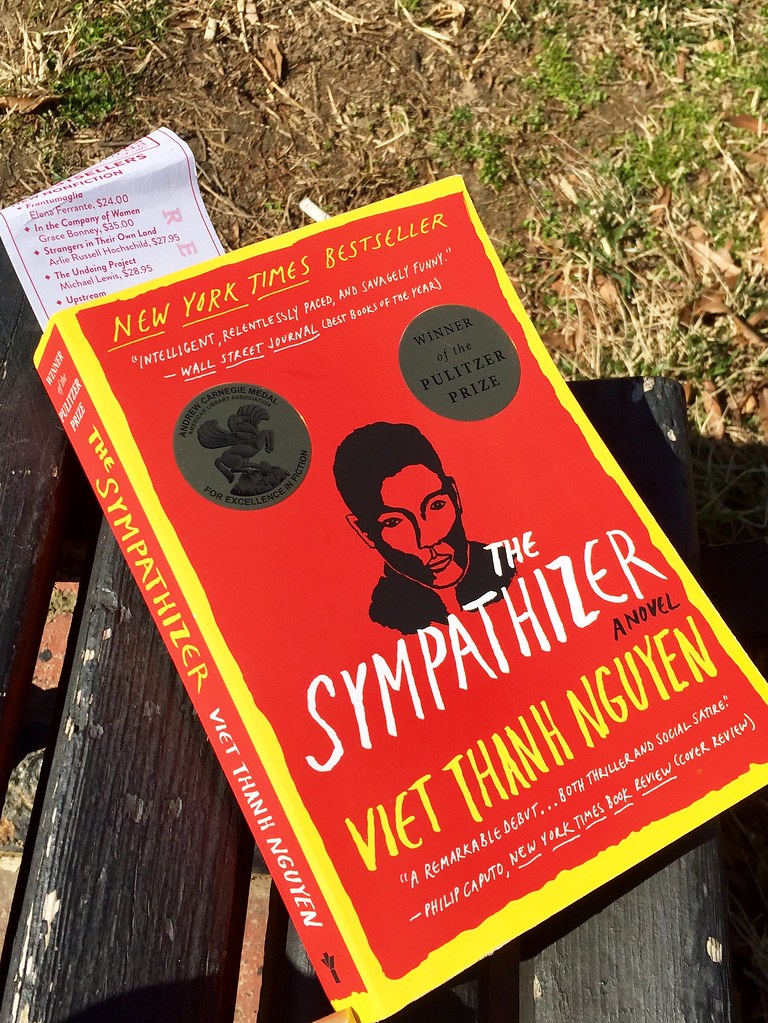Fiction requires the suspension of disbelief. Novels aren’t true but they have to feel that way, whether they’re about Hobbits from the Shire or jaded exiles in 1920s Paris.
I started Moonglow by Michael Chabon and put it down halfway through. The book strides the line between memoir and novel and succeeds at neither. There’s a scene where Chabon’s grandfather and another man attach explosives to the Key Bridge during WWII to tweak local authorities. Maybe because I live in Washington, and have crossed the bridge numerous times, but this scene did not ring true with me. The tale seemed impossible, as did Moonglow, which read like a shaggy dog story, despite the good reviews.
I did not have that problem with The Sympathizer by Viet Thanh Nguyen, which captured me instantly, from the very first line:
I am a spy, a sleeper, a spook, a man of two faces.
The book is a confession, written to his jailer, as a nameless secret agent recounts his sins during the Vietnam War. We get his story, and the story of the war from the Vietnamese perspective, as well as a wry account of refugees in America in this tour-de-force of a novel.
It’s a little too long. A hundred pages could be excised from its length but there’s hardly been a novel published in the past ten years that I haven’t felt the same about. Still, there’s not a false word in this work of fiction. Nothing breaks the spell of disbelief.
The Sympathizer deserves the Pulitzer Prize for that reason. It’s a powerful story that feels true. And that’s the test of great fiction.
